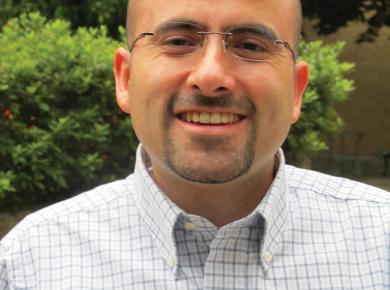Posted: May 25, 2015
“Colombian people do not fight for money. You fight for power.” These were the words of a North American missionary after several decades of ministry in Colombia. She was speaking about the ongoing reality of broken relationships among church leaders because of conflicts.
After 22 years of ministry in Colombia I must recognize that this is a sad reality in our churches. During this time I have witnessed too many unhealthy conflicts erupt in our congregations; I have also witnessed too many broken relationships, and seen too many hurt people leave as a result .
However, during the short time that I have served in Mennonite World Conference, I have found that issues of abuse of power and unhealthy conflicts among leaders are not only a Colombian reality. As a matter of fact, I have been discovering that these seem to be transcultural issues that are present in all peoples and nations, and a trans-Anabaptist gene that has affected all our churches. In spite of cultural and theological differences, issues of abuse of power and conflict among leaders have been with us since the time of Cain and Abel.
What are some of the characteristics that I have observed in church leaders around the world that are involved in unhealthy conflicts and abuse of power? I can mention the following so far:
Personal needs that have been notresolved. There are emotional weaknesses that are very evident when leaders face conflicts. For example, some leaders seem to be thirsty for recognition. They expect to receive a special treatment or an expression of gratitude for their service. When this does not happen, they may react aggressively toward others, or spiral downward into passivity and self-pity. How different would our churches be if we learn to pray as Mother Theresa did: “Lord, grant that I may seek rather to love than to be loved.”
Another example has to do with leaders that have learned to fulfill their sense of emptiness with the privileges that some ecclesial positions bring. To lose those privileges is something that these leaders do not want to do. It does not matter if people get hurt. For them to satisfy their emotional needs is more important that the people that they were called to give their lives for.
Extreme perfectionism. It is evident when leaders are not ready to recognize their mistakes or to ask for forgiveness when they have hurt others. To be vulnerable is something that is not easy for some people in positions of leadership. For some reason these leaders think that if they open there hearts and recognize their mistakes they will lose authority. This may be the influence of secular ideas about leadership. The idea of a strong, lonely leader that does not express his/her feelings is supported by cultural understandings that do not accept the idea of leadership as service, which in Christian terms is done from our wounds and vulnerability and not from a position of power.
Enforcing uniformity. A natural outcome for leaders that abuse their power is the attempt of suppress diversity. These kind of leaders do not tolerate those who think differently than they do. Theological differences or diversity in leadership style are criticized and labeled as sinfulness by people that exercise their leadership in an authoritarian way. Because diversity is perceived as a threat, these leaders demand the use of creeds as a tool to measure orthodoxy without recognizing that diversity has been part of the Christian faith right since its beginning.
These characteristics are found in many leaders who know no other way of exercising their responsibility. The need for a new pattern of leadership in our world is immense.
How can our churches respond to such a need? God calls us to offer a new pattern of leadership – one derived from Jesus’ life and highlighted by our Anabaptist values: a leadership style that does not look for our own interests but for the wellbeing of others; a leadership style that recognizes our mistakes and is exercised from a position of vulnerability; a leadership style that celebrates diversity instead of suppressing it or persecuting it. I pray that the October 2014 issue of Courier/Correo/Courrier may help us, as a global family of faith, to move in that direction.
César García, MWC general secretary, works out of the head office in Bogotá, Colombia.

Comments: